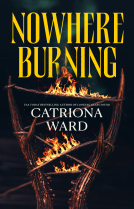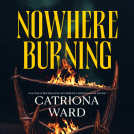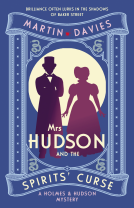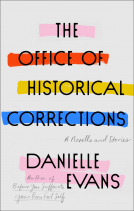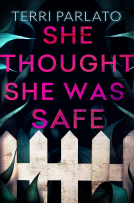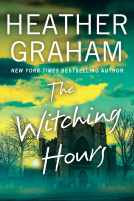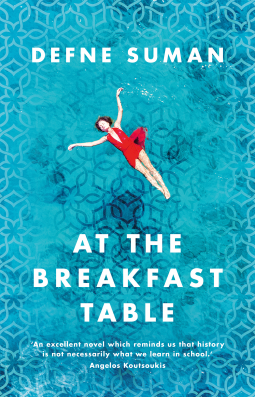
At the Breakfast Table
by Defne Suman
This title was previously available on NetGalley and is now archived.
Send NetGalley books directly to your Kindle or Kindle app
1
To read on a Kindle or Kindle app, please add kindle@netgalley.com as an approved email address to receive files in your Amazon account. Click here for step-by-step instructions.
2
Also find your Kindle email address within your Amazon account, and enter it here.
Pub Date Sep 01 2022 | Archive Date Sep 01 2022
Head of Zeus | Apollo
Talking about this book? Use #AtTheBreakfastTable #NetGalley. More hashtag tips!
Description
Told from four different perspectives, At the Breakfast Table is a story of hidden histories and family secrets, from the author of The Silence of Scheherazade.
Buyukada, Turkey, 2017. In the glow of a late summer morning, family gather for the 100th birthday of the famous artist Shirin Saka. It ought to be a time of fond reminiscence, looking back on a long and fruitful artistic career, on memories spanning almost a century.
But the deep past is something Shirin has spent a lifetime trying to conceal. Her grandchildren, Nur and Fikret, and great-grandchild, Celine, do not know what she's hiding, though they are intimately aware of the secret's psychological consequences. The siblings invite family friend and investigative journalist Burak along to interview Shirin – in celebration of her centenary, and also in the hope of persuading her to open up.
Eventually Shirin begins to express her pain the only way she knows how. She paints a story onto her dining room wall, revealing a history wiped from public consciousness and generations of her family's history.
'Fiercely intelligent, finely textured and achingly beautiful.' Elif Shafak
Available Editions
| EDITION | Ebook |
| ISBN | 9781800247031 |
| PRICE | $13.49 (USD) |
| PAGES | 416 |
Average rating from 101 members
Featured Reviews
This book had short chapters, which made this a quick and easy read that was told from four different perspectives. It was well written with a well executed plot and well developed characters that were relatable. It was an enjoyable read.
AT THE BREAKFAST TABLE REVIEW:
Synopsis:
Told from four different perspectives, there are hidden histories and family secrets revealed.
Prinkipo Island, Turkey, 2017:
A family gathers for the 100th birthday of the famous artist Sirin Saka, but the deep past is something Sirin has spent a lifetime trying to conceal. Her grandchildren, Nur and Fikret, and great-grandchild, Selin, do not know what Sirin is hiding. They are aware of the secret's psychological consequences. The siblings invite family friends and investigative journalist Burak along to interview Sirin for his weekly column in celebration of her 100th year. They hope he will help unravel the family secrets and persuade her to talk. Sirin's life-long servant, Sadik, is determined to do all he can to protect the artist.
Review:
First off, I am so happy to have the opportunity to read and review this novel! At the Breakfast Table is full of dark secrets that a family must come to terms with once discovered. The main character will stop at nothing to protect her family from the past she has so desperately tried to keep hidden.
Overall, the plot is deep and well-written with characters that will surely become your new favorites! This was such a fun read to get into. I absolutely love this author!
I quite enjoyed this. The story is being told from the perspective of four different characters who all interact, but each have very different motivations. Because of this, it's hard to see where the story is going at first, but it's great to get different angles as the threads slowly come together. There are a lot of jumps between the present and the past, which can sometimes require a bit of concentration to follow, but overall I found the book easy and pleasant to read. The final reveal of the family secret didn't disappoint either, it was a touching but not overly romanticised story in a beautiful setting.
 Clare H, Educator
Clare H, Educator
I enjoyed this book. Told from the perspectives of four characters; Celine, Nur, Sadik and Burak, the story deals with topics such as love, social status, one's personal history etc.
I felt the island setting was beautifully described and I could visualise the busy market, pier etc. I was engaged throughout and was curious as to Sadik and the grandmother's secret.
What I didn't like were the characters of Nur and Celine, especially Celine. I struggled during any Celine chapter. I found her irritating, self-absorbed and over the top in every scene. Her character for me took away some of my enjoyment reading the book.
This book explores the long shadows that our pasts cast upon us, through two interwoven stories in one family. These come spilling out in the course of an idyllic summer day on an island in the Bosporus, as a family prepares for its matriarch’s birthday.
The first story, the suspense that underlies the novel, concerns the matriarch and her manservant whose arrival in Istanbul in their youth lies unexplained - where did they come from, why did they leave, and what is this incomprehensible language they speak when they are unaware of being listened to? Turkey’s history is inescapably embedded into their personal narratives, as is the country’s reticence to address the uglier aspects of its past. This is about the stories we refuse to tell.
The second story is a love story between a journalist friend and the granddaughter, and it is one of thwarted and unequal love that has endured decades. This then is about the stories we tell ourselves, stories that are often more captivating than the reality in front of us, and that in its repetition trap us in a past that no longer exists.
#AtTheBreakfastTable #DefneSuman
It took a while for me to get into this book; the chapters are written in first person by different characters that are central to the main story. The plot has many different strands, searching for answers in family history, trying to uncover trauma from within and dealing with love - hidden, unrequited and intense.
Once I'd familiarised myself with the characters and the writint style, I began to really enjoy this book. It's descriptive and intense as it covers interwined stories, none of which are straight forward. I really enjoyed the history that is unveiled - which I won't go into so no spoilers!
Thanks to NetGalley and the publishers for my advance review copy.
 Summer H, Educator
Summer H, Educator
Highly recommend!! My first book to read by this author but definitely not my last!! Uniquely and beautifully written, this story and its characters stay with you long after you finish the book.
 Reviewer 553494
Reviewer 553494
Woah. So I had zero expectations when I started reading this, I was motivated to pick it up because it's set in Turkey. I really enjoyed this, a pleasant surprise. Although, you need to be patient because it doesn't "pick up" till like halfway through but it's so worth it watching everything fall into place.
 Book Trade Professional 112914
Book Trade Professional 112914
I really enjoyed the multiple perspectives and the glimpse into modern day life in Turkey (and the historical mystery!).
 Educator 667783
Educator 667783
This book is a take told from different perspectives. A tale of history hidden and kept secret.
It is set in Turkey, 2017 and the famous artist Sirin Saka is being interviewed fir her 100th birthday, however, that is only the beginning of the story. The reporter has a secret, her grandchildren have secrets, even her servant, an aged gentleman, has his secrets, especially about his history. All is revealed by the end of the story, everyone’s secret is out, life can continue at a more relaxed state and new history can be made.
An insight into the history of Turkey which will interest anyone who is curious about how lives have been altered by the past and how people cope with this.
 V E, Reviewer
V E, Reviewer
Not my typical type of read but I found the writing style really interesting and the characterisation very intriguing.
 Reviewer 715290
Reviewer 715290
The family of famous artist Shirin Saka has gathered on Prinkipo Island, Turkey to celebrate her 100th birthday. I loved how the descriptions of the island and ocean made me feel as though I was right there. In the days leading to the celebration, we learn of past regrets, personal struggles, fears, and family secrets. The chapters alternate between the main characters, each telling their own part of the story. A few places in the book were a bit confusing for me, but in all, I found this an enjoyable read. I received a complimentary copy of this book. The opinions expressed in this review are completely my own.
Every family has its secrets.
Some are earth shattering, some most assuredly not, but all of them are held close to the chest of their keeper/s for fear of what they could do to the family itself and to those outside looking in, who seldom let a sound perspective or facts stand in the way of censorious judgement.
In Defne Suman’s luminously lovely but emotionally exacting novel, At the Breakfast Table, the family of legendary artist Sirin Saka have gathered to celebrate a milestone for their matriarch at their ancestral family home on Büyükada (Prinkipo Island), a short ferry ride from Istanbul, but a world away once you step onto its bucolic, unhurried shores (unhurried save for the tourists who descend in summer).
She is about to turn 100, and in the days leading up to that momentous event, where celebration should be the sole order of the day, secrets begin to emerge, some small but still momentous for those affected by them, and a large, family-bestriding one that Saka, and her faithful companion/servant/friend Sadik Usta, have kept under the covers for well near a century.
As is the often the way with dam breaking, of the actual or metaphorical kind, small cracks appear at first, many of them engendered by the sheer fact that the family are back in a place where so much of their collective life has taken place and which, because of that, can’t help but feel redolent with a lifetime, several in fact, of memories, hopes raised and dreams sundered.
The breaking apart of the walls between generations and between the conventional family history, which is already painful enough as it is without any further surprises, is an organic one though it does receive a significant push along when Burak, a family friend of many years who is deeply in love with Saka’s granddaughter Nur – a love, by the way, that she dabbles in when emotional needs demand but which she puts aside like an item of convenience that can be accessed with no consequence – and who has become known for his journalistic series of profiles known as Portraits, which aim to bring to life hitherto unknown things about the subject.
He is there to interview Saka as much as to celebrate her life, and on the first morning he is there, at a breakfast table lavishly decorated with by Sadik who is in his early 90s but as committed and devoted as ever to the welfare of his beloved Saka, to talk to the artist who is strangely loquacious, ready to talk in a way the once-fiery rule-breaker often isn’t in her old age.
Burak’s is not a confrontational interview style, with the journalist in him happy to go where the subject leads, but while Saka doesn’t spill the beans there and then, enough is suggested for Burak, and other members, to come to understand there is more to the matriarch’s story that has previously been suggested.
In a way, the family isn’t necessarily eager to uncover the deep, dark truth of their shared past, but truth, once hinted at, often breaks mercilessly free from its cage, and so it is in At the Breakfast Table which, told from the vantage points of Sadik, Burak, Nur and her niece Celine, slowly builds the portrait of a family with a great deal to learn about each other.
Told with insightfully empathetic language and a poetical intent which still allows the raw truth and pain to come through when needed, At the Breakfast Table is a wondrously nuanced and deftly, slowly told tale which understands all too well that even the biggest of secrets rarely come rushing out with blockbuster-type force; rather they are revealed, inch by inch, memory by memory, the product of incremental admissions that together, over time, paint a picture of a world that the recipients never knew existed.
For all of the powerfully impactful emotional resonance of this gorgeously-rendered novel, it is luxuriously and thoughtfully told, with each of the four perspectives, which naturally encompass those too of Nur’s brother and Celine’s father Fikret, who is on a mission that sees him mysteriously disappear at the height of festivities, and Nur’s estranged husband Ufuk, who is keeping his distance from the family for reasons that come to light in the slowly-tumbling torrent of secrets that come to see the light of day over one unexpectedly intense weekend.
The beguiling genius of At the Breakfast Table is that it never submits to melodrama or high emotion, preferring a quiet, meditative and appealingly languorous, richly human approach, even when Celine is distraught over the father’s whereabouts or Burak is wrestling once again with his unending but fruitless attraction to Nur, who does not and seemingly cannot love him the way he wants.
Through the ruminatively unfolding beauty of a novel whose pace belies the momentous events and emotions within (though at dramatic point that does change to an almost manically earnest degree), we get to know each of the four people and those with whom they interact to degrees that feel invasively but welcomingly intimate.
There is both a sense of life unfolding as it always on Büyükada, with the family home wielding its usual magic and people falling into their expected and comfortable roles and patterns, and of the established order being upended, a status quo-changing turn of events that makes its presence felt slowly but surely, and which in its wake leaves a family not so much ruined, as different, good and bad, which is very much how life often tends to leave things – unfinished and somewhere messily in the middle.
At the Breakfast Table is a brilliantly evocative piece of writing, rich in memorable, exquisitely well-drawn and beautifully, fallibly, alive characters, a narrative that takes its time unspooling its secrets and which is more groundbreakingly intense that its pace or atmosphere might suggest, and a sense of humanity that understands how history, over which we hold little sway, and life choices come together to craft a reality which we can embrace or not, but which somehow, inevitably, will always find its way out, leaving the world, and in this case, a family changed in its wake.
This story is so rich in vivid imagery I was totally transported away with this domestic drama. The plotline had me intrigued; a famous artist who has kept her family at arms length from her public image. Now as she celebrates her 100th birthday her extended family and an investigative journalist join her to reminiscence over her life and achievements.
The story is told through four narratives; Celine, Sadik, Nur and Burack and in the beginning I did find it difficult to differentiate between the characters. Although once I got into the flow, I enjoyed the short chapters and relaxed into the family’s full history and their darker moments.
 Liz B, Reviewer
Liz B, Reviewer
This novel is set in turkey and the reclaimed artist Shirin Saka is gathering her family together to celebrate her 100th birthday. The whole novel takes place over around a day and we have four perspectives – Sadiq, who is Shirin Saka's servant. A few years younger than Shirin, he has been with her almost from childhood; Nur who is Shirin Saka's granddaughter; Celine, Shirin Saka's great-granddaughter and Nur's niece;, Burak who is a journalist who has know the family for many years and was once the lover of Nur, he is there to interview Shirin Saka on her 100th birthday. This is a family were secrets are hidden deep and Fikret, who is Nur's brother becomes obsessed with discovering the truth.
The descriptions of the island are so evocative and the characters come across well although, personally, I really did not enjoy Celine's chapters. I found her irritating and so obsessed with herself. If her chapters had been missing, I don't think it would even have mattered. The way the novel is structured, each chapter, each perspective almost follows on from the one before but looking at things in a slightly different way. The secret entices us, we follow eagerly and it does not disappoint. A sub-plot – the relationship between Burak and Nur also captures the attention.
An easy read with dark secrets being revealed in a fantastic way by Shirin Saka.. Perfect for summer.
 Reviewer 625522
Reviewer 625522
An intriguing and absorbing book. The cover is really bizarre. Also the translation leaves a lot to be desired. Told from 4 different points of view it was engaging and highly evocative of the scenario it was set in. Burak and Nur were favourite characters. This is one boo0k I am going to get as a physical copy to reread which I feel I should do
 Denis W, Reviewer
Denis W, Reviewer
Can memories be inherited like eye colour? As this novel addresses family secrets, hidden histories, generational conflicts, deaths and imminent deaths, love requited or not, it tries to answer that question. It’s apparently linear structure is told in chapters from four alternating viewpoints, with time moving forward more or less without overlapping. However, in each chapter the featured character conveys the situation while also colouring it with their own memories and experiences. The four characters are: Burak, an investigative feature writer; Nur, granddaughter of Shirin Saka and Burak’s sometime lover; Celine, Shirin Saka’s great granddaughter, recent graduate; Sadik, Shirin Saka’s lifelong companion and butler to her and her household. Shirin is a world famous artist who will be 100 in a few days, and the family are meeting at her house on Büyükada (Turkish for big island although it is actually a very small island off the coat of Istanbul) to celebrate. Fikret, Nur’s brother and father to Celine is also present but, after a surprising piece of family history is revealed at breakfast, suddenly disappears. Celine sets out to find him, against a background of secrets being hinted at and finally revealed. At the same time Burak is also working on his widely anticipated interview and biography of Shirin. Where is Fikret and will these two searches disrupt, forever, the family?
I wrote that opening paragraph as I would for a standard mystery novel. However, this is not one such. It has some of the tropes, family secrets, missing people, investigators (journalist type, here) but it is much, much, deeper. It revolves around events in the past which are of great moment to Turks and Greeks. Without previous knowledge of these, a Western European (or American), needs to accept that relevant history will emerge and that it isn’t necessary to the story for you to know it ahead of the reveal. We all know that tragic events inhabit all cultures.
What you need to know is that this is a beautiful story, superbly written, with wonderful, deeply imagined, characters. It is a literary masterpiece, deserving of awards and accolades. If it had been originally written in English, such wonderfully constructed English, it would definitely have been up for a major award. As a translation from Turkish, I am in awe over the skill of the translator, Betsy Goeksel, who has produced a virtually flawless rendering.
I would like to thank NetGalley, the publishers and the author for providing me with a draft proof copy for the purpose of this review.
At the Breakfast Table is a beautiful story of lifelong love and resolve. It is a story of generations affected by a war many of the characters hadn’t lived through and the secrets kept by those who did. This story is also a history lesson for those of us who do not know much about Turkish history. I found myself researching Turkish history and maps and wanting to make a trip there to see the places that Suman mentions. This would make an excellent book to travel to Turkey with.
Suman has beautifully written a story about life and history. It is a story I would recommend to anyone who enjoys historical fiction.
 Kasia K, Educator
Kasia K, Educator
Oh, this one is a gem! This is precisely the kind of book that I adore and love: slow, thoughtful, and yet gripping prose where the story unfolds piece by piece like a puzzle. And even though you know from the very beginning what the picture is, you still keep uncovering every single puzzle, because what is essential is the process of putting them all together.
The beginning of the book is a bit misleading because we jump into the story right next morning after a party and it feels like this is going to be another melancholic romance. Well, wrong and thank god for that.
The oldest member of the family is about to celebrate her hundredth birthday and that is why the family gathers together on the small island. Each chapter is told by some of the characters of the story and quickly it becomes obvious that nobody in this family is happy, they would very much like to be, they all have tried in the past, but still, they don´t know how to be happy. Every now and again someone says that feel incomplete and inside them, they feel that something is weighing them down and they have no idea what to do about it. Also, there is this theory, mentioned a few times in the book, about genetic trauma. Basically, it´s down to the fact that a person who suffered a traumatic experience does carry its burden to future generations. Personally, I totally agree.
So why is this family so unhappy? We can see four generations deeply wounded, how arent able to form a healthy bond with people around, and there seems to be no answer as to why is that so.
MAYBE A SPOILER BUT IMPORTANT
If you know a bit of history it´s easy to figure out right away the source of trauma. Shirin Saka is a hundred years old now and a Turk. A hundred years ago the Turks committed genocide, in order to establish Islam in a newly independent Turkey they decided to get rid of all Christians, of whom the majority were greek-catholic Pontians. Many people have died, many hid underground, some were forced to convert to Islam, and some people were lucky enough to escape into Greece or Russia. The Turks destroyed almost all religious places of worship and artifacts. They have never apologized for it, you won´t read about it in Turkish school books and they keep their effort to wipe out Christianity off their territory, they even turned the Hagia Sophia into a mosque recently despite international protests.
Did you know that a little over a hundred years ago there was quite a big Christian community around the Middle East from Iraq, Iran, mostly in Syria up to Turkey? Almost none are left now. Almost all have been murdered and the world keeps silent. So here is a big thank you to the author for bringing up such an important topic to light. This is the first book I have ever come across about this matter in western literature. There have been few published non-fiction documentaries in Poland within the last two decades about the Pontian genocide, but that´s all I know about.
So please read and enjoy this incredible book, because it´s not only excellent but also tells you about what the president of today's Turkey, Mr. Erdogan does not want you to know.
 Viv R, Reviewer
Viv R, Reviewer
I really enjoyed this book. I love when I learn something from history that I knew nothing about. The characters were well developed and the location was very well described. All this in a novel that essentially occurred on only one day.
 Philipa C, Reviewer
Philipa C, Reviewer
Delighted to have been guided to this novel by the publishers and for Netgalley to offer it for review.
Translated novels can be confused and literally 'lost in translation'. But this was wonderfully done because the writing was top class. Literary style overcame what firstly seemed to be just a family saga set in Turkey. Based mostly on the island of Buyukada, 'the Big Island' is in the Sea of Marmara. Its landscape, smells and tastes of the wonderful local cuisine is evocatively described. Much family discussion/argument/revelations are taken over a plate of bread/feta/olives or glass of raki and added to the reality of the plot.
The characters were well established although as the dramatic conclusion approached the 'family' became a much wider reality.
Seemingly the romance between Celine and Burak clearly became a side line to Nur, and subsequent intricacies of relationships were both passionate and believable. My favourite character for the whole story was 'servant'/housekeeper Sadik Usta and he bloomed and became integral to the whole story - much more than even I had anticipated.
"We were like a Renaissance painting" was one quote from a character reflecting on the family dynamic and the title reflected much that grew from the very first breakfast scene. The 100 year old Madam Shirin used all her best brushes to portray the finale too.
The politics and history of Turkey including links with Greece/Ottoman Empire and violent unrest were often new to me and were the reasons for secrets and the continuing differences between secular and Moslem religions.
Overall a wonderful novel inspired originally from a short story. I felt immersed in this family and in their places of residence in Turkey.
 AliceMaud M, Reviewer
AliceMaud M, Reviewer
This is a beautiful novel set in Turkey. Although on the face of it the book is about what happens over one or two summer days leading up to a matriarch's 100th birthday, four different narrators each give the reader their own version of events, including a backstory, which is slightly confusing at the beginning of the book. The final chapter is one of the narrator's tale of what happened next.
The author's descriptions of sights, sounds and smells are wonderfully vivid, and the translator is to be congratulated on making this book so readable in English. I enjoyed reading about traditional Turkish life, and, together with some of the characters in the book, learning important facts about the relatively recent history of Turkey.
 Megan M, Librarian
Megan M, Librarian
While at their vacation home on an island in Turkey, a family breaks open it's cache of secrets at the celebration of their oldest member's 100th birthday.
 Joseph C, Reviewer
Joseph C, Reviewer
Defne Suman’s At the Breakfast Table is set in contemporary Turkey, precisely in the summer of 2017 on the island of Büyükada. Sirin Saka, once a prominent Paris-trained painter and alleged lover of Jean-Paul Sartre, is approaching her hundredth birthday, and her family converges onto her summer residence to celebrate this event. However, her grandson Fikret, son of Sirin Saka’s now-deceased daughter Suheyla, has plans of his own. He is obsessed with discovering the history of his great-grandfather, Sirin Saka’s father Nuri, who remains a shadowy figure in his family’s past. Partly for this reason, he invites a close family friend, investigative journalist Burak, to interview Sirin Saka, in the hope that this will uncover secrets buried for generations – secrets intertwined with momentous happenings in 20th Century Turkish history.
At the Breakfast Table is based on the concept of collective memory, the idea that traumatic events in the past can affect not only the direct participants, but also their descendants and entire communities. Although this theory may verge on the esoteric, it certainly provides much narrative scope. Suman uses it as a basis for a generational saga in reverse in which layers of recent history are peeled away to revel the sore at the source of contemporary ills.
This story is presented through the point of view of four characters, whose perspectives alternate throughout the book. Suman does a very good job of differentiating between the voices of her narrators, which are convincingly rendered in Betsy Göksel’s flowing translation. There’s Burak – intelligent, confident but quite narcissistic. There’s his on-and-off lover Nur, Fikret’s sister, who comes across as principled, passionate, and emphatic with the plights of others, but also somewhat conflicted and hesitant. Celine, Fikret’s daughter, brims with youthful and somewhat naïve enthusiasm. And then there’s the dependable, ancient butler Sadik, faithful servant and companion of Sirin Saka, depositary of uncomfortable secrets and memories. The different viewpoints generally work and complement each other well, although admittedly at some points the strategy becomes rather clunky, particularly when Suman needs to involve other characters (such as Sirin Saka or the tragic figure of Suheyla) who do not have their own “voice” and whose storylines therefore have to be incorporated in the narratives of one or more of the other actors in the saga.
The pace of the novel is quite leisurely – sometimes possibly too much so – with the latter part of the book suddenly picking up as revelations are made. The occasional longueurs, however, are compensated for by the sheer sensuality of the narration. While its basis is a philosophical, quasi-mystical one, this novel engulfs the senses in a celebration of “earthy” pleasures. There are copious descriptions of the taste, smell and texture of food; references to music and dance (from Albinoni to folk music to Massive Attack); evocations of the fragrance of the sea, of herbs, of incense, of pine; the vibrant colours of nature and of Sirin Saka’s art, and; last but not least, erotic but tasteful lovemaking scenes.
This is a poignant exploration of a painful and sometimes controversial historical subject, done in an ultimately hopeful and life-affirming way.
https://endsoftheword.blogspot.com/2022/08/at-breakfast-table-by-defne-suman.html
This is a glorious book, world! The second novel I’ve read by Defne Sunam and it exceeded my expectations - a new favourite. This is a multigenerational tale of one family living in Istanbul, from the great grandmother, Shirin Saka, a celebrated painter, through her grandchildren Nur and Fikret, to her half-Scandinavian great grandchild Celine - all of the family are together on the island of Buyukada to celebrate the one hundredth birthday or their matriarch, Shirin. Sat around the breakfast table a day or so before the birthday tea, they listen to Shirin Saka being interviewed by Nur’s childhood sweetheart Burak, now a renowned journalist, about her life. But the mysteries of Shirin’s early life set various tensions between the family members and Burak alight - is their family under a generic curse from some kind of hidden secret in Shirin’s past? Fikret thinks so and disappears following a comment at the table. Celine and Nur are in states of emotional agitation of their own, while Shirin herself is finally ready to tell her story, in the best way she knows - paint. As the story comes to light, so too does a buried history that extends well beyond the family. This is such a beautifully crafted story, cleverly put together - for example the way the painting seems to come to life as Celine is looking at it, and other really nice details.
My thanks to #NetGalley and Head of Zeus for an advanced reader copy in exchange for an honest review.
 Reviewer 640978
Reviewer 640978
Enjoyable quick read! I really enjoyed the various perspectives and getting to know the hidden parts of the famous artist’s past! Changing timeline, family drama, chaos in general and a bit of spice! It was interesting, highlighting Turkish customs as well.
 Librarian 431790
Librarian 431790
I fell in love with this book since the first chapters: a mix of family and personal story mixed with Turkish and European history.
Different POV that creat a coloured and detailed tapestry, an artist and her past.
The author is an excellent storyteller and I loved this story.
Highly recommended.
Many thanks to the publisher and Netgalley for this ARC, all opinions are mine
 kATHLEEN G, Reviewer
kATHLEEN G, Reviewer
This might be Shirin's story but it's actually bigger than that. Told from four perspectives, it's an immersive experience that's different from the usual elderly-person-reflecting-on-life tale. Thanks to netgalley for the ARC>. For fans of world fiction.
An enjoyable, family saga told from 4 different perspectives. I found it a little slow at times, but found how all the hidden secrets and stories came together satisfying.
A deeply involving and absorbing read, told from four different perspectives from family members of the great artist Shirin Saka who has gathered the family to celebrate her 100th birthday.
There are secrets that each character is keeping, emotional damage and attachments, heart-breaking accounts of a broken past, and inspirational creativity that affects them all.
As the present unravels and the past unfolds, we see the impact of history and also personal action that causes events and emotions that are unpredictable and untameable.
An in-depth exploration of family and feelings, there is so much to explore in this novel and so much to enjoy.
For fans of Elif Shafak, Defne Suman's latest read - At the Breakfast Table - is an incredible ode to Turkish families. With descriptive, beautiful writing, I was transported to a Turkish breakfast spread, lush with family drama, delectable food and enough tension to fill an island.
AT THE BREAKFAST TABLE captures the family of Shirin Saka as they gather for her 100th birthday in Buyukada, Turkey. They've invited celebrated journalist, Burak, to document her life, which takes incredible turns in all directions. The story is told through the ever changing lens of her grandchildren, Nur and Fikret, her great-grandaughter, Celine and her butler - the truth of her roots are slowly unveiled.
Much like Shafak, Suman has a beautiful way with words - her descriptions of the landscapes, food, and emotions of a scene were beautiful (and never too much, which I find a tough balance to strike). Her love of the Turkish culture and community is clear in her writing - I adored this story. While there is certainly a plot driven element to it, there was deep character exploration that I found enthralling, and definitely encouragement to read her other novel, The Silence of Scheherazade. Such a beautiful story - I will treasure this one!
Read this if you like: Multiple POVs, deep stories, family bonds
This book was published in 2018 but newly translated to English. It's a literary fiction, which I personally usually find to be slow. I really enjoyed this book. The story telling reminded me of Elif Shafak's books.
This is told from four different perspectives. It's a story of hidden histories and family secrets. We are starting at Prinkipo Island in Turkey, 2017. In the glow of a late summer morning, family gather for the 100th birthday of the famous artist Sirin Saka. It should to be a time of looking back on beautiful memories spanning almost a century, her amazing art career, and of an era when imperial forces fought over her homeland.
The issue is that Sirin has spent a lifetime trying to conceal a past from her family. Her grandchildren, Nur and Fikret, and great grandchild, Selin, do not know what Sirin is hiding. They are intimately aware of the secret's psychological consequences. The siblings invite family friend and investigative journalist Burak along to interview Sirin for his weekly column in celebration of her 100th year. They hope he will help unravel the family secrets and persuade her to talk.
This is a deep thought provoking read and I really liked it. I recommend you pick this up tomorrow.
Thank you to NetGalley, the author, and Head Of Zeus for the gifted copy!
 Lynne P, Reviewer
Lynne P, Reviewer
This is quite an understated book. I didn’t realise what I felt about this story until I got to the end and realised how beautifully written it was. The way the story is told is very reflective and it weaves perfectly between different narratives and timelines.
I don’t know a lot about Turkey, so I jumped at the chance to read this book that delves into Turkish history and the heart of it’s people. Set in 2017, Buyukada, Turkey as a family gather to celebrate 100th birthday of the famous artist Shirin Saka. They are expecting reminiscences that are joyful and everyone looking back on a long and succesful artistic career, on family memories spanning almost a century. Some members of the family would like to take the opportunity to delve into family history. However, for Shirin, the past is a place she has been happy to leave behind. In fact she has concealed some of her experiences even from her closest family. In particular her children and great-grandchildren have no idea what those experiences are, despite being aware of it’s psychological consequences. Some want Shirin to open up and heal. Others want answers, perhaps to find answers for their own struggles. In an attempt to persuade her into telling her full story, one of her grandchildren invite an investigative journalist called Burak, to celebrate her achievements but in the hope of helping her too. Burak has his own reasons for being there - he was once the lover of Shirin’s granddaughter. I wondered if the younger members of the family truly understood the well of pain that Shirin has kept from them? Unable to express her pain any other way, Shirin begins to paint her story. Using the dining room wall she reveals a history that’s been kept from her family, but also from the public’s consciousness, an episode from the last days of the Ottoman Empire.
As a believer in the healing power of many different art forms, including writing, I was very interested in how her family’s plan would work out. We don’t always know how people will react to opening up in this way, it’s why trained therapists like me are taught to create a safe space for people to talk and reveal their secrets. Even the client has no idea how they will react, so Shirin’s family are playing with something they don’t understand. I couldn’t understand why they would think their grandmother would want to remember on her birthday, let alone divulge her history to Buruk. Surely therapy would have been more appropriate first? To tell her history, the author splits the historical portions of the narrative into four different narrators, each a member of the Shirin’s family group. This gives us a wide angle lens on the past. I loved the atmosphere created and the way the author didn’t exoticise Turkey. She still showed us a place of vibrancy and colour, but this wasn’t a tourist’s view. It was the Turkey of the people who work and live there. I felt there could have been more balance between the past and the present, because I was interested in Shirin’s recovery from these memories being dragged up, especially at such an emotional time. As it was, the book felt off balance, more heavily weighted in the past and from four different perspectives rather than just Shirin’s.
The four narrators did work in terms of showing the same events from different perspectives. There were times when one character’s view of the facts was so far from the truth it had an emotional effect on me, but that’s an emotionally intelligent author at work. The author wants us to feel that dissonance so we understand the painful consequences of that misunderstanding. I’m a big believer in the effects of generational trauma and we see that here, despite Shirin thinking she’s shielded her children and grandchildren from these events, they are still deeply affected by her trauma. They are traumatised in turn, without ever knowing the story. I could imagine though, the relief of understanding why a parent has behaved a certain way, especially if it caused you pain. Despite me wishing I could have spent more time with them, we do see enough to know that despite the stress fractures in this family, they still love each other. Their playfulness and sibling banter was realistic and touching. The dynamics of their interactions were so deeply rooted in the past, but we’re the only ones who can see it with our 360 degree view. This was a fascinating look at a family’s history and how their intertwined lives spiral out from one single event so long ago.
Loved it!
Thanks so much to NetGalley and the publishers for letting me read this book in exchange for my review.
 Sarah B, Reviewer
Sarah B, Reviewer
At the Breakfast Table is the story of the hidden past of Shirin Saka, told through the eyes of her family, a journalist friend and her loyal servant / companion. I love how slowly Defne Suman builds the story, and as the story builds you become involved in the lives and dramas that are playing out in the present.
Beautifully written, an immersive read.
Thanks to NetGalley and the publishers for allowing me to read At the Breakfast Table.
The short chapters made this book so wonderful! I loved being able to rip right through them and still feel like I was deeply invested in this story. I would highly recommend you read this book as the story is so wonderful and beautifully written!
I usually don't discover Turkish authors on NetGalley, so this was an exciting find for me! I enjoyed the family histories unearthing along with the brilliant descriptions of the island and the food.
 Leanne N, Educator
Leanne N, Educator
At the Breakfast Table is a wonderfully crafted novel about reconstructing history - what really happened against what was recorded - and what we choose to remember. A familiar tale of dark secrets presented through four generations of one family searching for their identity and subsequent release from the curse seemingly hanging over their crest. A compelling read, beautiful settings and characters full of life’s wonders.
It took a while for me to get into this book, but once I did, I was gripped. Told from four perspectives during one day, family secrets are revealed. Turkey was an additional character here, brought to life by Suman’s deft writing.
Last week I was thoroughly enjoying my vacation with AT THE BREAKFAST TABLE by Defne Sulman. 3.5 Stars
This family drama takes place in 2017 Turkey and centers around the matriarch, Shirin Saka a famous painter's 100th birthday. The story unfolds through the voices of Burak, a journalist with long family ties; Nur, Madam Shirin's granddaughter; Celine, Nur's niece; and Sadik Usta, the longtime servant/caretaker of Madam Shirin. These differing perspectives give a generational sweep of the drama that this family is enduring with a recent push to discover more about their family history. What Madam Shirin finally reveals in her own way will give much to process.
This was a fascinating story that gave me a glimpse of Turkish life. I enjoyed learning more of the present and the past through their recollections.
I admit I had a difficult time with the characters in this story. Nur became hard for me to sympathize with or like, and Celine was just way too juvenile for me to bear. Burak seemed sad and desperate, but I loved Sadik Usta and his loyalty and friendship with Madam Shirin. They shared so much and I would have loved more of his parts. The revelations that were slowly revealed were heavy, heartbreaking, and yet held the love of friends.
This is a translated story and I felt that it was done well. I do wonder if some of my less liked parts had some loss from the change of culture that is likely my loss. I think the writing was lovely, however, and could picture and smell and imagine so much.
Thank you to NetGalley for this digital ARC. It is a lovely family drama with lessons across borders. This book is available now!
 Sue T, Librarian
Sue T, Librarian
Prinkipo Island, Turkey, 2017. A family gather to celebrate the the 100th birthday of famous artist Sirin Saka. In attendance are her granddaughter Nur, Nur's brother Fikret, and Fikret's daughter Celine - and of course, Sirin's life-long servant and friend Sadik, who never leaves her side. They have also invited journalist and family-friend Burak to both share in the quiet celebrations, and record events by interviewing Sirin about her long and eventful life.
This is a family marked by the weight of things unsaid, and difficult relationships that have been unknowingly fashioned by the secrets that Sirin has kept from them. Almost as soon as the little party gathers, the tension is palpable. Fikret is obsessed with finding out more about his grandmother's family history, and urges Burak to probe her memories for details, but Burak's motives for being there actually relate to his desire to reignite the flame that once burned between him and Nur. Meanwhile, Nur is lonely and reflecting on the gulf that has arisen between her and her absent husband Ufuk as a result of secrets of her own, and young Celine is convinced she is in love with Burak. Sirin herself is mostly consumed by the fog of her memories, and all the while Sadik quietly takes care of them all, observing their actions and keeping what he knows close.
The morning before Sirin's birthday, Fikret goes missing. Over the course of a single day the fall-out of Fikret's disappearance sparks many revelations, and Sirin finally tells the tale of the pain and anguish her family have kept hidden for generations in the only way she knows how - by expressing everything she has kept inside through her artistic talents.
The story is told through the eyes of Nur, Celine, Burak and Sadik, crafting a many layered story that beautifully combines a family drama full of aching passion, regret and loss, with a sweeping story of that explores how terrible events from history shape the fate of the generations that follow. I am wary of revealing too much here, as so much is laid bare over the course of this tale, but can tell you that Suman works spellbinding magic in the way she spins every single thread of this incredible book, delving into the private thoughts of, and relationships between, the younger characters, while doing the same in parallel with the mystery of Sirin and Sadik's enmeshed past - and all the while dropping clues that eventually force you to confront some of history's worst moments during the fall of the Ottoman Empire. The characters are necessarily complex and it is not easy to like them all, or the behaviours they exhibit. I was not overly fond of Burak, with his arrogant determination to pursue Nur, nor of Celine's immaturity, but they are factors integral to how this story plays out. My favourite of them all was Sadik, with his attention to the needs of everyone around him, especially in the way he protects Sirin, which was very moving.
If you have read Suman's breath-taking English language debut The Silence of Scheherazade then you will already know how she can bring history alive while immersing you in the lives of living-breathing characters that really drive a story. The cast of characters is much smaller and more intimate here, and the feel of the book is rather different in the way it combines contemporary issues with a difficult past, but the scope of the history she touches upon is every bit as fascinating, and emotionally compelling, and something about the contrast between personal dramas that occupy the younger generations and the heart-rending moments that define Sirin and Sadik's story is magical. I loved the way she ties many of the significant episodes of this book to moments around 'the breakfast table', whispers notions of family insanity, and works in a repeated theme of women's talent being overshadowed that is used subtly, but with real impact.
As in The Silence of Scheherazade, this book is translated with impressive skill by Betsy Gӧksel. This is a book in which you experience every intense moment, and at no time do you feel distanced from the characters, their spirit, or the weight of their burdens. There is such poignancy here and it touches you deeply, which is probably the highest praise I can give to the work of a translator.
This is a powerfully affecting book. It draws you in and gets under your skin, taking you on a journey that stays with you long after your have turned the final page. If you have yet to discover Defne Suman, then you are in for an absolute treat.
Like Suman’s previous book ‘The Silence of Scheherazade’, this book also has the Turkish War for Independence at its heart. Unlike the previous one however, it is set in contemporary Turkey, mainly on the biggest island in the Sea of Marmara near Istanbul, and explores how past events are embedded in the genetic memory of a family and how past traumas are passed on from generation to generation.
Whilst I found the execution of this lacking in subtlety, I enjoyed immersing myself in the story of Shirin’s family. The story comes together through four perspectives, the voices of Nur (her granddaughter), Celine (her great-granddaughter), Sadik Usta (her servant and soul mate) and Burak (Nur’s long-time friend and journalist). He joined the family to celebrate Shirin’s 100th birthday and to write a profile about her to add to the other pieces of oral history he regularly publishes.
The tension between those who want to learn what really happened generations before, when Shirin’s father committed suicide at the breakfast table, and those who are afraid of what they might find when delving into the past, is tangible. At the end, it is the old lady herself who feels that a passage into the past has been opened and cannot be ignored any longer. Her revelations tell us the story of the purge of the Pontic Greeks from their home, the Eastern Black Sea, and more specifically, the story of her own family’s survival.
It is, in places, a very moving book and one that takes its time to unfold. I liked it and learnt a bit more about a part of the world that attracts its fair share of sun-seekers but deserves to be known for much more than just its wonderful coastline.
I am grateful to NetGalley and Head of Zeus for an ARC in exchange for an honest review.
Firstly, thank you to Netgalley, Defne and the publisher for a copy of the book in return for an honest review.
I enjoyed this book, the short chapters and skipping between perspectives made it move quickly. I enjoyed the writing and the storyline was captivating and engaging.
A book steeped in Turkish history, a sense of place written to match the likes of Elif Shafak, and at times the taut narrative is evocative of André Aciman’s Call Me By Your Name… coming from me, that is all the praise you need.. 🤔
It is 2017 and in Turkey a family gather to celebrate the 100th birthday of the famous artist Shirin Saka. A time for celebration and gentle reflection but there is a hidden history here, which has been buried deeply; a history whose secrets have taken their psychological toll on the subsequent generations; so is it time to unbury the pain and for the family to really come together and heal…
Told from four different perspectives, we gradually piece together the past and we gain an understanding of the family members who do not have a voice in the telling.
Through each flawed protagonist, we gain insight into each of them and an idea of how we got to where we are.
Celina; the young, impetuous great granddaughter who is desperate for attention.
Nur and her journalist lover Burak, both bring depth to the piece and a strong sense of the public consciousness.
And finally, Sadik; he has been in Shirin’s life since childhood. A friend, a servant and now an old man with failing memory. Closest to the woman at the centre of this tale, yet holding her secrets as closely as he is able; her secrets are his and they will stay that way until…
…Until Shirin is ready to reveal them herself, to express her pain the only way she knows how; she paints her story onto her dining room wall.
A love story, a mystery, a beautiful and often heartbreaking, portrayal of the landscapes, culture and history of Turkey but most of all a clever and compassionate examination of generational trauma and the damage that family secrets can produce.
A stunning read.
An insight into Turkish history is weaved into the story of those affected by war. Told from different viewpoints, family struggles, hidden secrets and life's regrets start to surface as the book progresses.
Very enjoyable! Four interesting characters dealing with the present and the past; a past which is a conundrum in a variety of ways: familial, romantic, politic (at a state and personal level). The four perspectives are satisfyingly diverse and the puzzle is put together by the reader with the right amount of effort. The setting, contemporary Istanbul, and the cultural milieu (secular and intellectual middle class), make it also particularly interesting for me as I don’t know much about Turkey. There were some longueurs but the writing is compelling. The translation has no awkwardness. Recommended: serious entertainment.
Every family has its secrets. Whether they are of potentially ruinous revelations or not, they are generally held close to the chest of their keepers for fear of what they could do to the family itself and those outside looking in, who seldom let a rational perspective or the facts stand in the way of judgement.
In Suman’s emotionally charged novel, At the Breakfast Table, the family of artist Sirin Saka have gathered to celebrate a milestone event at their ancestral family home on Büyükada, only a short ferry ride from bustling Istanbul but a world away in its rustic temperament.
Of course, in the days leading up to that momentous event, secrets begin to emerge, some small but meaningful for those affected by them, and a big one that Saka, and her friend Sadik, have kept hidden for near on a century.
The breaking of these revelations between generations and between the conventional family history is already painful enough, even though it does receive a significant push along when Burak, a family friend of many years who is deeply in love with Saka’s granddaughter Nur and who has become known for his journalistic talents.
Burak is there to interview Saka; on the first morning, he is at a breakfast table lavishly decorated by Sadik, who is in his early 90s but as committed and devoted as ever to the welfare of his beloved Saka. Burak wants to talk to the artist, who is ready to speak in a way the once-fiery rule-breaker often isn’t in her old age.
While Burak’s is not an aggressive interview style, Saka doesn’t confess there, and then, enough is suggested for Burak to come to understand there is more to her story than has previously been hinted at.
Problems arise when the family isn’t eager to uncover the dark truth of their shared past, but reality, once hinted at, often breaks mercilessly free regardless, and so it is in At the Breakfast Table, which, told from various perspectives slowly builds the portrait of a family with a great deal to learn about each other.
This is an evocative and deftly written book in which steady pacing allows secrets to be revealed memory by memory, the product of incremental admissions that together, over time, build a world that the recipients never knew existed.
 Reviewer 771928
Reviewer 771928
Why background should be such a family secret? When it brings so many painful memories back, when that background means you unwillingly did unspeakable things to protect one side you hold more dear while sacrificing the other side, when it means the difference between life and death, backgrounds become a family secret. But they need to come out when it is safe to speak about the to remember those you left behind.
This wealthy family with a great matron who was going to celebrate her 100th birthday got together for this joyous event and also holidays. A journalist friend was invited too to record such momentous event because matron happened to be a very famous painter back in her time. This family and friends gathering turned into means to uncover many family secrets past and present. It depicted what it means to be a family, how sacrifices changed from past to present: while struggles were different, end game was the same.
Also this passage resonated so much with me; I couldn’t stop referencing: “I have always found the sea more seductive than any man. No amount of lovemaking can match the feeling of wholeness that infuses my soul when I dive into the water. I adore the way my body gradually adjusts to the sea's hardness, its coolness. Even as a child, a most wonderful sensation would spread through me - a sensation that today I know as sexual pleasure - whenever I leapt off our wooden jetty into the sea. The sea was so vast and I was so tiny, so incomplete. Real life, a faraway port, would begin when I grew up. Until I reached that port, I would just be play-acting. This is meant to be my house. Here is the living room, the kitchen. I am meant to be the lady of the house and you, my dollies, are meant to be my children, but you aren't really. This isn't actually my house, it's a corner of my grandmother's garden, and I am not yet a beautiful, grown-up lady, I'm just practising right now.”
 Tracey J, Reviewer
Tracey J, Reviewer
A well-written and well-plotted story about families and deep secrets the main protagonist is desperate to keep hidden. The story is told from four different perspectives which does require some concentration but overall, it's a lovely story and was a real pleasure to read with wonderful descriptions of Turkey as the setting.
 Kimberly P, Reviewer
Kimberly P, Reviewer
At the Breakfast Table evokes the sparkling, bright Turkish sunshine, the fragrance of coffee, fruit, and fresh bread, and mesmerizes with the fascinating and complicated characters who make up this story.
Nur, Fikret, and Celine come to Shirin's house to celebrate her 100th birthday. She is Nur and Fikret's grandmother, and Celine's great-grandmother, as well as a famous artist. There is also Burak, Nur's on-again off-again lover and friend, and the Shirin's faithful servant, Sadik.
This begins an unboxing of personal and family secrets Shirin has kept close for years, as well as a lesson in Turkish history, told mostly through painting on her dining room wall.
A beautiful novel; one that will be lovely to read during cold winter months. Highly recommended!
*Thanks to Apollo and NetGalley for the free e-galley in exchange for an honest review.
At The Breakfast Table is a beautifully written, slow-burning novel, which manages to combine levels of mystery and intrigue with politics, family relationships, trauma, heart-ache and long-held secrets.
As a family gathers for the 100th birthday of their matriarch, famous artist Sirin Saka, celebration isn't the only plan for the weekend. Sirin's family feel she is hiding a great secret, and so invite investigative journalist and close family friend Barak along to interview Sirin on the weekend of her gathering, hoping he will be able to pry the past from her memory, as before long it may be gone for good.
Told from the perspective of four characters: Barak, Celine (Sirin's great-granddaughter), Sadik (Sirin's life-long servant), and Nur (Sirin's granddaughter), the reader gets a truly in-depth look into countless areas and genres of this families life, and the complicated dynamics and relationships that come with it. Suman's prose is stunning, and incredibly descriptive, but it is unique, and can certainly be awkward at times. If this doesn't bother you too much, however, then it's definitely worth the plight.
